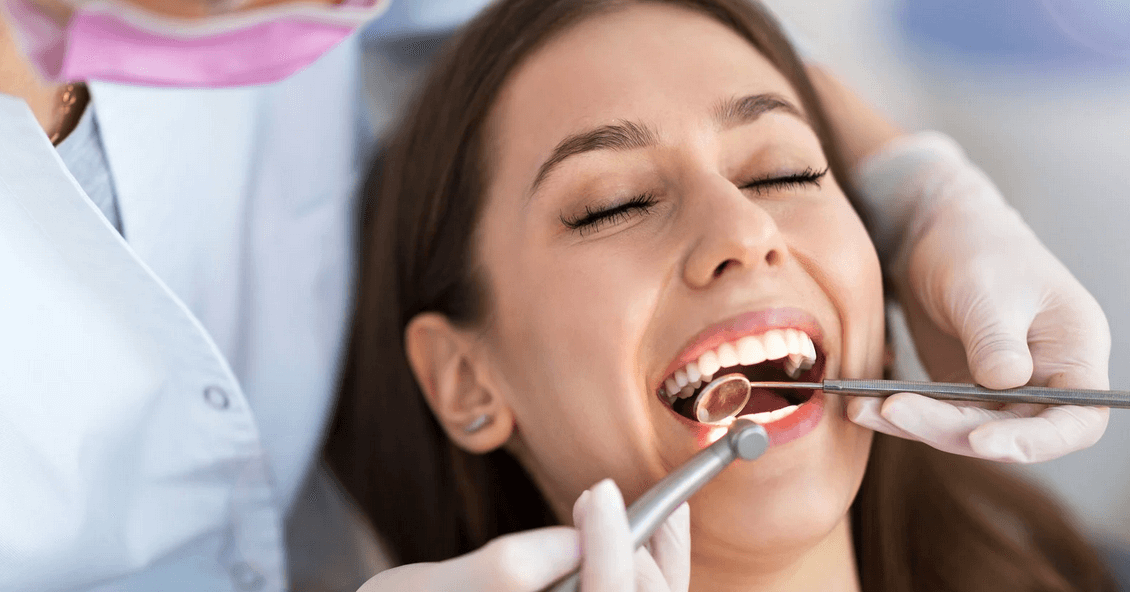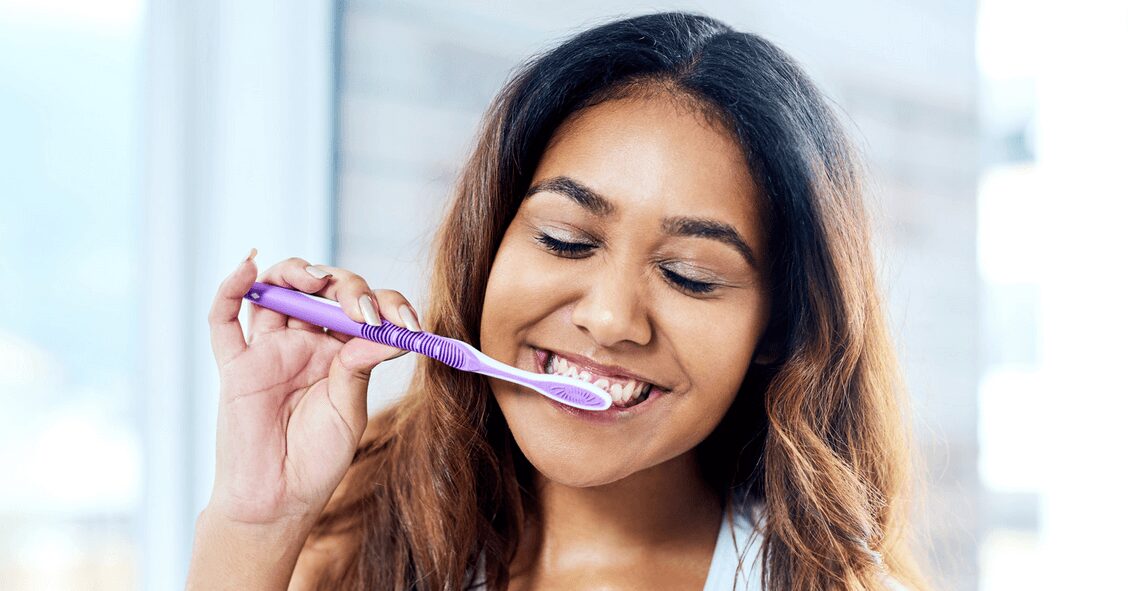Maintaining good oral health is important for everyone, but it’s especially crucial to maintain oral health during pregnancy. Many people don’t realize that pregnancy can affect your dental health in several ways. Hormonal changes can lead to problems like gum disease and tooth decay, which can affect both the mother and the baby. During this special time, taking extra care of your teeth and gums can help you avoid these issues and ensure a healthy pregnancy. In this blog, we’ll explain why oral health during pregnancy is so important and give you some tips on how to keep your mouth healthy.
Understanding the Connection Of Oral Health During Pregnancy
How Hormonal Changes During Pregnancy Affect the Gums and Teeth
During pregnancy, your body undergoes several hormonal changes that can impact oral health. Elevated levels of hormones like estrogen and progesterone can increase the sensitivity of your gums to plaque, making them more susceptible to inflammation and bleeding. This condition is known as pregnancy gingivitis and affects many expectant mothers. If left untreated, gingivitis can progress to more severe gum disease, which in turn can affect your overall health and the well-being of your baby.
Increased Blood Flow and Its Impact on the Oral Cavity
Another significant change during pregnancy is the increased blood flow throughout your body, including your gums. This heightened blood flow can cause your gums to swell and become more tender, making them more prone to bleeding during brushing or flossing. While this increased sensitivity can be uncomfortable, maintaining good oral hygiene is essential to prevent plaque buildup and reduce the risk of gum disease.
Common Issues With Oral Health During Pregnancy Faced By Women
Pregnant women often face a range of oral health issues beyond gingivitis. For example, some women may experience “pregnancy tumours” or pyogenic granulomas, which are non-cancerous growths that typically appear on the gums. An exaggerated inflammatory response to irritants like plaque often causes these growths. Additionally, morning sickness and increased acidity in the mouth can lead to enamel erosion and an increased risk of tooth decay. Therefore, pregnant women must communicate any concerns with oral health during pregnancy with their healthcare provider and maintain regular dental check-ups to address these challenges promptly.
Common Oral Health Issues During Pregnancy

Pregnancy Gingivitis
Pregnancy gingivitis is a common condition that many expectant mothers experience, typically during the second trimester. It is characterized by red, swollen, and bleeding gums, often occurring due to hormonal changes that increase blood flow to the gum tissues and make them more sensitive to plaque. This heightened sensitivity leads to inflammation, making the gums more prone to bleeding, especially during brushing or flossing. Although pregnancy gingivitis is usually mild, if left untreated, it can progress to more severe forms of gum disease, which can affect both maternal and fetal health.
Prevention and Treatment Tips
- Maintain Good Oral Hygiene: Brush your teeth at least twice daily with fluoride toothpaste and floss daily to remove plaque.
- Use a Soft-Bristled Toothbrush: To minimize gum irritation, opt for a toothbrush with soft bristles.
- Regular Dental Check-ups: Visit your dentist for routine cleanings and check-ups to catch and address any issues early.
- Rinse with Antiseptic Mouthwash: Using an antiseptic mouthwash can help reduce bacteria and plaque buildup.
- Stay Hydrated: Drinking plenty of water can help wash away food particles and reduce acidity in the mouth.
- Balanced Diet: Eating a diet rich in vitamins and minerals supports overall and oral health. Avoid sugary snacks and beverages that can increase the risk of tooth decay.
Periodontal Disease
How Untreated Gingivitis Can Progress to Periodontal Disease
If gingivitis is not treated promptly, it can develop into a more severe form of gum disease known as periodontal disease. In periodontal disease, the inflammation extends beyond the gums to the bone and other supporting structures of the teeth. The progression includes the formation of deep pockets between the teeth and gums, which harbour bacteria and plaque. Over time, these pockets become more profound and more difficult to clean, leading to bacterial infection and the breakdown of bone and connective tissues that hold the teeth in place.
Risks Associated with Periodontal Disease During Pregnancy
Periodontal disease poses several risks for pregnant women. Studies have shown a correlation between periodontal disease and adverse pregnancy outcomes such as preterm birth, low birth weight, and preeclampsia. The chronic inflammation and bacterial infection associated with periodontal disease can trigger an inflammatory response throughout the body, which may influence pregnancy complications. Additionally, the discomfort and pain caused by advanced periodontal disease can impact a mother’s ability to eat nutritious foods, further affecting her overall health and the health of her baby.
Importance of Early Detection and Management
Early detection and management of periodontal disease are crucial, particularly during pregnancy. Regular dental check-ups allow for early identification of gingivitis and periodontal disease before progressing. Treatment options may include more frequent professional cleanings, scaling, and root planing to remove plaque and tartar from beneath the gum line. Maintaining excellent oral hygiene at home, including brushing, flossing, and using antibacterial mouthwash, can significantly reduce the risk of periodontal disease. By addressing oral health issues early, expectant mothers can promote a healthy pregnancy and reduce the likelihood of complications for themselves and their babies.
Increased Risk of Tooth Decay
Pregnant women often experience heightened cravings and increased snacking, which can contribute to a higher risk of tooth decay and affect oral health during pregnancy. Sugary and carbohydrate-rich foods, common cravings during pregnancy, provide a food source for cavity-causing bacteria in the mouth. Additionally, more frequent snacking means teeth are exposed to sugars and acids for extended periods, increasing the likelihood of decay. Morning sickness and increased acidity in the mouth further exacerbate this issue, as stomach acid can erode enamel, weakening the teeth and making them more susceptible to cavities.
Tips for Preventing Cavities
- Brush After Meals: Whenever possible, brush your teeth after meals to remove food particles and reduce the risk of acid and sugar sticking to your teeth.
- Choose Healthy Snacks: Opt for nutritious snacks such as fruits, vegetables, cheese, and nuts, which are less likely to contribute to tooth decay.
- Rinse with Water: If brushing is not possible, rinse your mouth with water after eating to help wash away food particles and acids.
- Use Fluoride Toothpaste: Brushing with fluoride toothpaste can help strengthen enamel and protect against cavities.
- Limit Sugary Drinks: Reduce the consumption of sugary beverages like soda and fruit juices. Instead, drink water or milk.
- Chew Sugar-Free Gum: Chewing sugar-free gum can stimulate saliva production, which helps neutralize acids and wash away food particles.
Pregnancy Tumors (Pyogenic Granuloma)
Pregnancy tumours, clinically known as pyogenic granulomas, are non-cancerous growths that can appear on the gums during pregnancy. These growths are typically a response to hormonal changes that occur during pregnancy, which can cause an exaggerated inflammatory reaction to irritants like plaque or food particles. While the exact cause is not fully understood, it is believed that increased levels of estrogen and progesterone, combined with local irritants, contribute to the development of these benign tumours.
Symptoms and Appearance
Pyogenic granulomas usually appear as small, red, and swollen bumps on the gums, often appearing between the teeth. They can range in size from a few millimetres to a couple of centimetres and tend to bleed easily when touched or during brushing. Due to their sudden appearance and potential for bleeding, these growths can be uncomfortable and may cause concern.
Treatment Options and When to Seek Dental Care
Most pregnancy tumours resolve independently after childbirth when hormone levels return to normal. However, maintaining good oral hygiene can help reduce irritation and prevent the growth from increasing in size. In cases where the tumour causes significant discomfort, bleeding, or interferes with eating or oral hygiene practices, it is advisable to seek dental care. A dentist may perform a professional cleaning to remove irritants and may recommend additional treatments, such as rinsing with an antibacterial mouthwash. In rare cases, if the pyogenic granuloma is large or does not resolve postpartum, surgical removal might be necessary. Regular dental check-ups during pregnancy can help monitor these growths and ensure they are managed appropriately.
Safe Dental Practices For Oral Health During Pregnancy

Maintaining good oral hygiene and routine dental visits during pregnancy is crucial for both the mother’s and baby’s health. Hormonal changes can make gums more susceptible to inflammation and infection, thus increasing the importance of regular dental check-ups. Ensuring dental conditions are managed during pregnancy can help prevent complications such as periodontal disease and its potential impact on pregnancy outcomes.
Importance of Maintaining Routine Dental Visits
Routine dental visits allow for the early detection and management of any issues with oral health during pregnancy that may arise. Dentists can provide professional cleanings, monitor gum health, and give tailored advice on maintaining oral hygiene. These visits are essential for preventing conditions like gingivitis and plaque build-up that may pose additional health risks during pregnancy.
Safe Dental Procedures During Each Trimester
Understanding which dental procedures are safe during each trimester can help expectant mothers avoid unnecessary risks and ensure their comfort throughout pregnancy.
First Trimester
The developing baby is most vulnerable during the first trimester, making it prudent to avoid elective dental procedures. However, routine dental care, such as cleanings and check-ups, should not be neglected. If dental treatments are necessary during this period, informing the dentist about the pregnancy is essential so they can take necessary precautions.
Second Trimester
The second trimester is generally considered the safest period for undergoing necessary dental work. By this time, the baby’s development is more stable, and the expectant mother is likely to be more comfortable than in the first or third trimesters. Procedures like cavity fillings, extractions, and other essential treatments can be safely conducted with minimal risk.
Third Trimester
Major dental procedures should be avoided in the third trimester due to the increased discomfort and potential complications associated with lying flat for extended periods. Efforts should be focused on maintaining comfort and safety, ensuring routine care continues, and addressing any urgent issues.
Tips for Communicating With Your Dentist About Your Pregnancy
- Inform Early: As soon as your pregnancy is confirmed, inform your dentist. This information can guide the types and timing of treatments they recommend.
- Discuss Medications: Inform your dentist about any medications or prenatal vitamins you are taking, as some dental treatments may need to be adjusted accordingly.
- Share Medical History: Provide your complete medical history, including any conditions or concerns that might affect dental care during pregnancy.
- Ask About X-rays: While dental X-rays are generally safe with proper shielding, it’s best to discuss any concerns with your dentist and minimize exposure where possible.
- Plan for Comfort: If treatments are necessary, work with your dentist to plan them at times when you are most comfortable and can return for follow-up care if needed.
Maintaining Good Oral Hygiene at Home
Daily Oral Care Routine Tips
- Brush your teeth at least twice daily, preferably after meals and before bedtime.
- Use a soft-bristled toothbrush to avoid irritating sensitive gums.
- Floss daily to remove plaque and food particles between teeth that a toothbrush can’t reach.
- Choose an alcohol-free mouthwash to avoid any adverse effects from alcohol exposure.
- A mouthwash containing fluoride can help further protect against cavities.
Diet and Nutrition for Healthy Teeth
- Incorporate calcium-rich foods like dairy products, leafy greens, and almonds to help maintain healthy teeth and bones.
- Crunchy vegetables such as carrots and celery can stimulate saliva production, which naturally cleanses the mouth.
- Include foods high in phosphorus, like meat, eggs, and fish, to support tooth enamel.
- If you indulge in sweets, eat them with meals rather than as standalone snacks to reduce the risk of cavities.
- Drink plenty of water throughout the day to maintain saliva flow, which helps wash away food particles and neutralize acids.
Conclusion
Oral health plays a crucial role in ensuring the overall well-being of both the mother and the developing baby during pregnancy. Hormonal changes can increase the risk of gum disease and other issues to oral health during pregnancy, which makes maintaining good oral hygiene and routine dental visits even more important. By actively managing dental health, expectant mothers can help prevent complications, such as periodontal disease, that may adversely affect pregnancy outcomes.
Prioritizing dental care is essential for promoting a healthy and comfortable pregnancy. Regular dental check-ups, professional cleanings, and timely treatments can prevent minor issues from developing into significant concerns. Communication with your dentist about your pregnancy and any medications you take allows customized and safe dental care. Remember that a healthy mouth contributes to a healthy body and can positively impact the baby’s development.
Schedule a dental check-up today to prioritize your well-being. Visit our Contact Page for more information or to book an appointment with Mills Haven Dental. Your smile and health are our priority!





